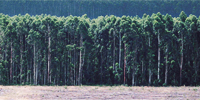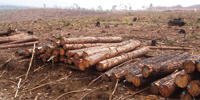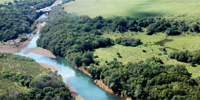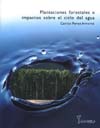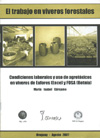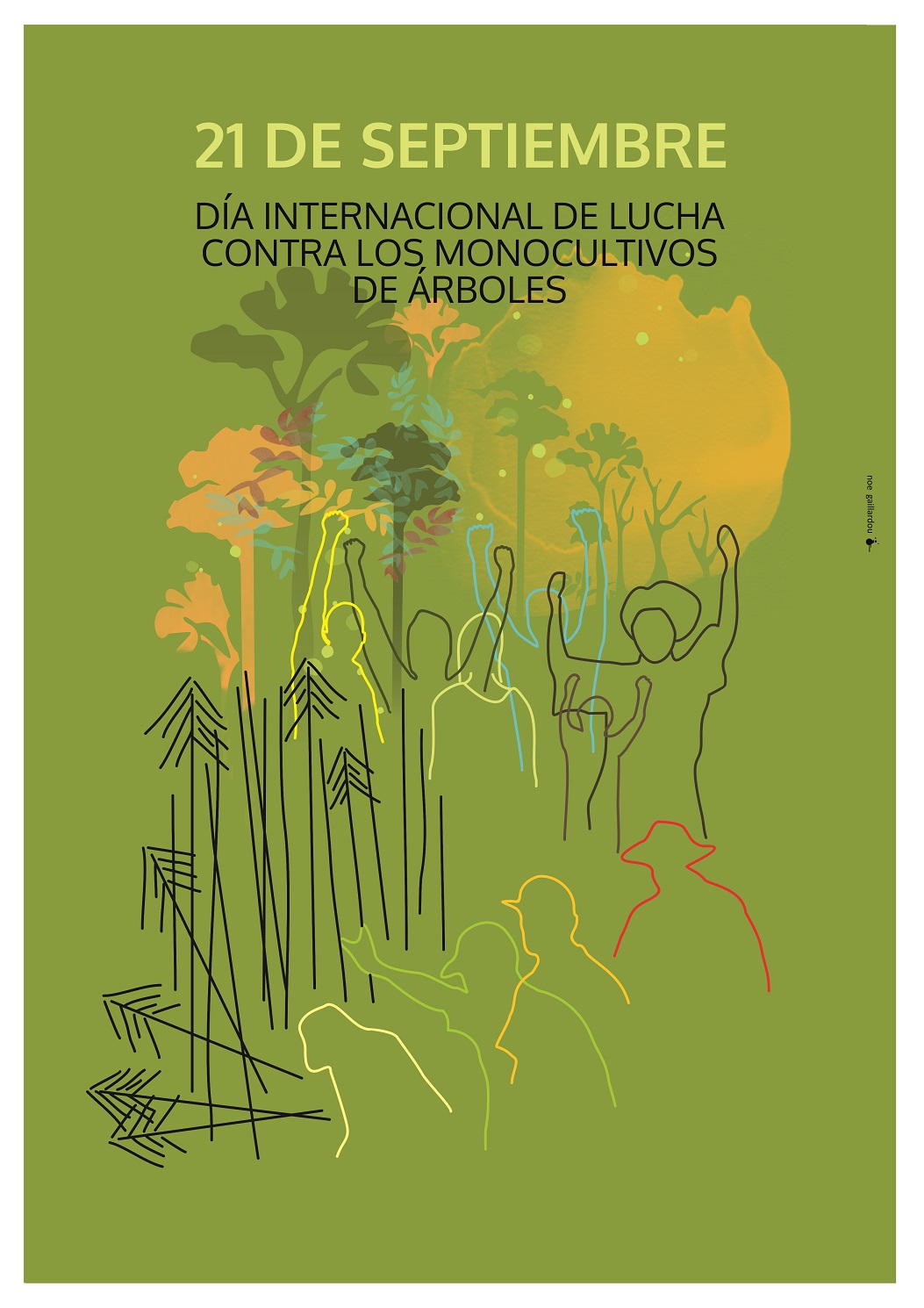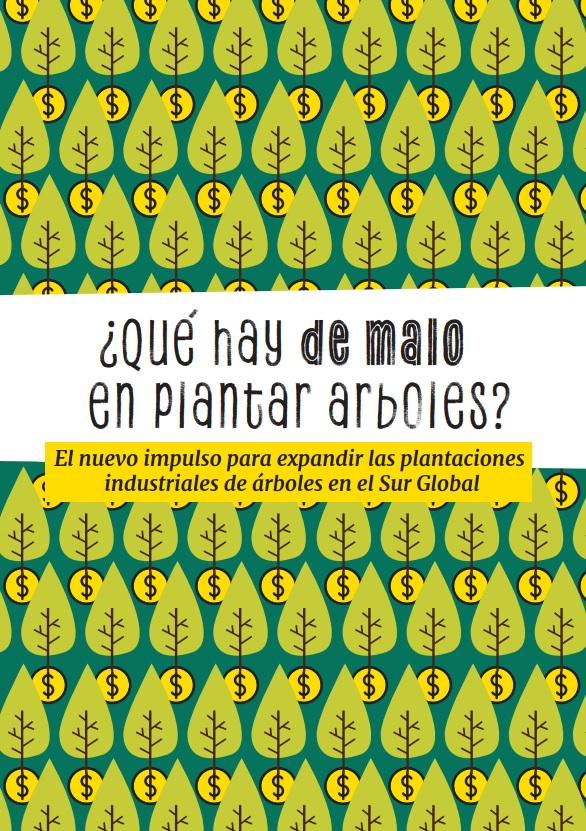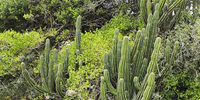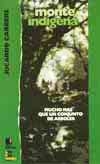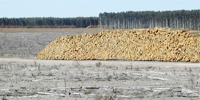September 21, 2011 – Montevideo, Uruguay
STOP the expansion of monoculture tree plantations!
On the occasion of the International Day of Struggle Against Tree Plantations, September 21st, social environmental organisations from Africa, Latin America, Asia and Europe gathered in Montevideo in order to exchange knowledge and experiences of resistance to the impacts of tree plantations.
To learn about the impacts over the years of industrial tree monoculture plantations in Uruguay, and alternatives that local people defend and put in practice, a field visit was organized in Soriano and Colonia Departments.
We saw a diverse rural agricultural landscape fragmented by large uniform blocks of tree plantations. We saw people struggling to go on with their rural life in a place where water has drained up and they depend on the water brought by the local government for their domestic and productive needs. We saw abandoned homes and schools and former social centres in ruins. We saw that beneath the tree plantations there are just dry leaves and a uniform landscape.
We learned that a huge pulp mill is being built in Punta Pereira, Colonia, a beautiful place by the River Plate and next to Conchillas, a national architectural heritage site. We learned that the company Montes del Plata has negotiated not pay taxes though it has become the biggest landowner of Uruguay. We learned that thousands more hectares of tree plantations will be established to feed the pulp mill and that the biodiversity will continue to suffer and the rural people will continue to be displaced.
We know that communities in many countries like Cameroon, Ghana, Liberia, Ecuador, Costa Rica, Argentina, Brazil, Thailand, Indonesia, Philippines are also suffering because of the expansion of tree monocultures for export, either as pulp, paper or raw material for energy products from wood chips and agrofuels in Europe and other industrialised countries.
Considering the negative impacts of large scale tree plantations for local people and the environment that we saw, learned and know, we support the demand of the local people to the government of Uruguay to take all necessary measures to immediately STOP the expansion of these INDUSTRIAL MONOCULTURE TREE PLANTATIONS and drop the policies that promote them, including incentives and subsidies.
We support natural ecosystems restoration and the diversification of local farming for a healthy production and the country’s sovereignty.
On this day, all of us also want to pay homage to our friend Ricardo Carrere who worked for so many years to disseminate and promote this international day of struggle, with the enthusiasm, determination and passion that he was known for. ¡Hasta siempre Ricardo!
Yurfee Shaikalee, AACC, Liberia
Amparo Miciano, Philippines
Philip Owen, Geasphere, South Africa
Patrick Anderson, Rainforest Information Centre, Australia
Premrudee Daoroung, TERRA, Thailand
Larry Lohmann, The Corner House, United Kingdom
Mervi Leppäkorpi, Finland
Ivone Yañez, Acción Ecológica, Ecuador
Isaac Rojas, Friends of the Earth International
Guadalupe Rodríguez, Salva la Selva, Spain
Klaus Schenck, Rettet den Regenwald e. V., Germany
Elsmarie Owen, Geasphere, South Africa
Cecile Ndjebet, REFACOF, Cameroon
Lambert Okrah, Canada
Ruby van der Wekken, Finland
Jutta Kill, FERN, United Kingdom
Martín Drago, REDES-AT Uruguay
Camila Montecinos, GRAIN
Carlos A. Vicente, GRAIN
Elizabeth Díaz, Grupo Guayubira, Uruguay
Winfridus Overbeek, World Rainforest Movement
Teresa Perez, WRM, Uruguay
Raquel Núñez, WRM, Uruguay
Flavio Pazos, WRM, Uruguay
Eduardo Sánchez, Amigos de la Tierra Argentina
Daniel García, Rel-UITA
Germán González, Rel-UITA

